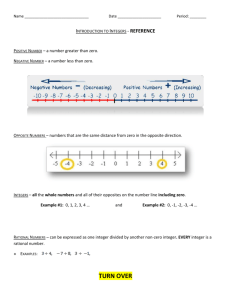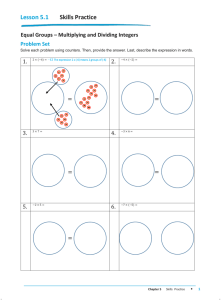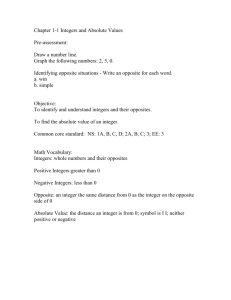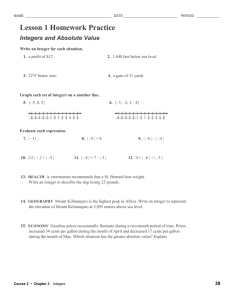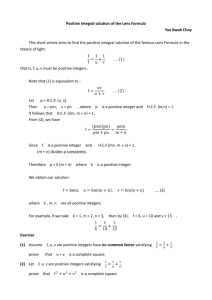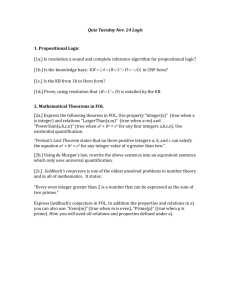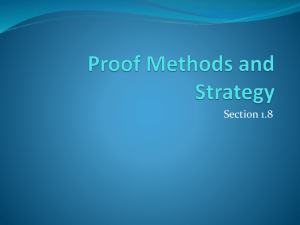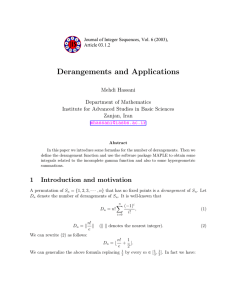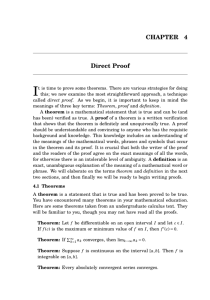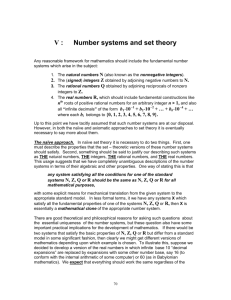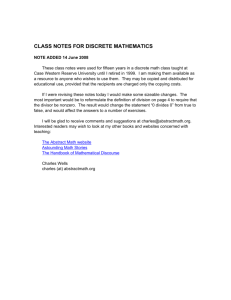Lesson Three: Proclamations and Proofs Definition. An integer m is
advertisement
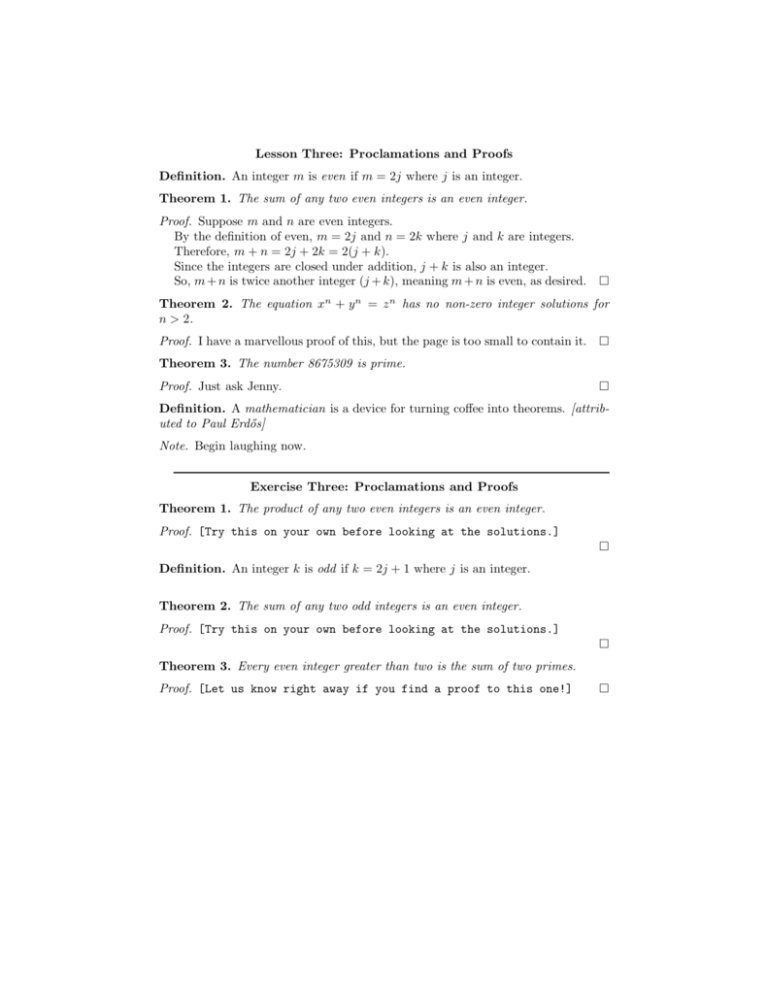
Lesson Three: Proclamations and Proofs Definition. An integer m is even if m = 2j where j is an integer. Theorem 1. The sum of any two even integers is an even integer. Proof. Suppose m and n are even integers. By the definition of even, m = 2j and n = 2k where j and k are integers. Therefore, m + n = 2j + 2k = 2(j + k). Since the integers are closed under addition, j + k is also an integer. So, m + n is twice another integer (j + k), meaning m + n is even, as desired. Theorem 2. The equation xn + yn = z n has no non-zero integer solutions for n > 2. Proof. I have a marvellous proof of this, but the page is too small to contain it. Theorem 3. The number 8675309 is prime. Proof. Just ask Jenny. Definition. A mathematician is a device for turning coffee into theorems. [attributed to Paul Erdős] Note. Begin laughing now. Exercise Three: Proclamations and Proofs Theorem 1. The product of any two even integers is an even integer. Proof. [Try this on your own before looking at the solutions.] Definition. An integer k is odd if k = 2j + 1 where j is an integer. Theorem 2. The sum of any two odd integers is an even integer. Proof. [Try this on your own before looking at the solutions.] Theorem 3. Every even integer greater than two is the sum of two primes. Proof. [Let us know right away if you find a proof to this one!]

